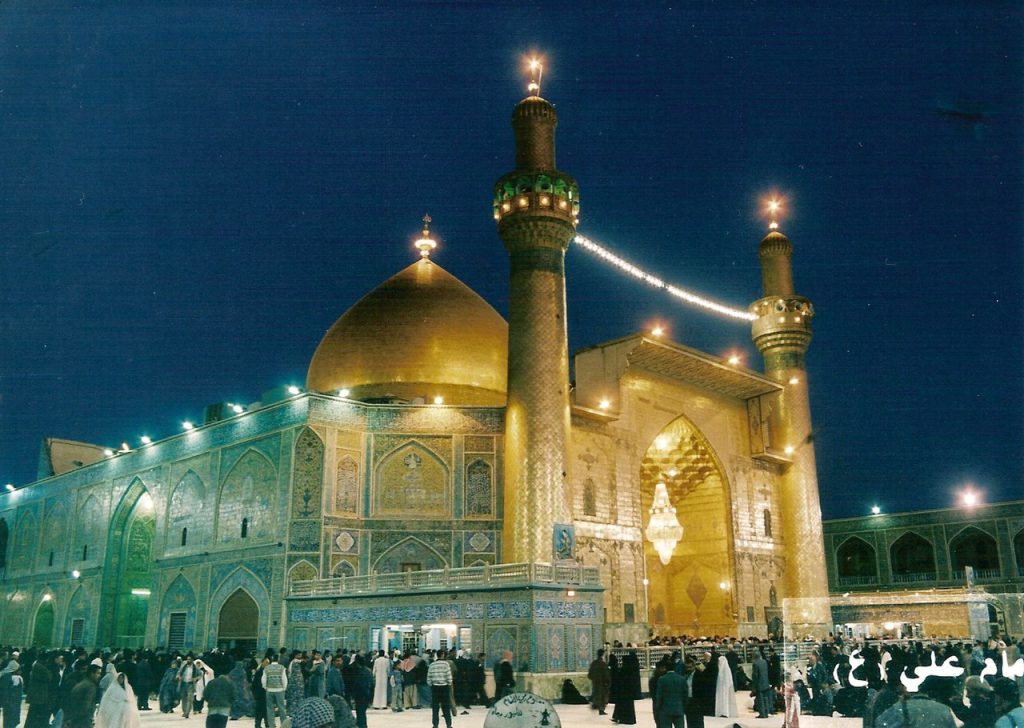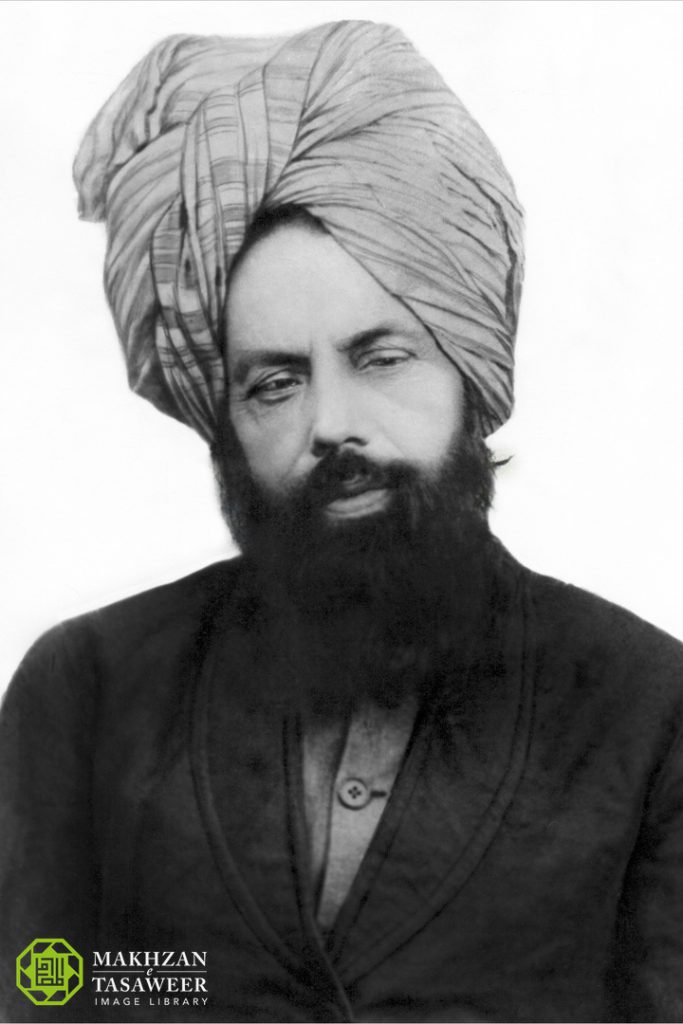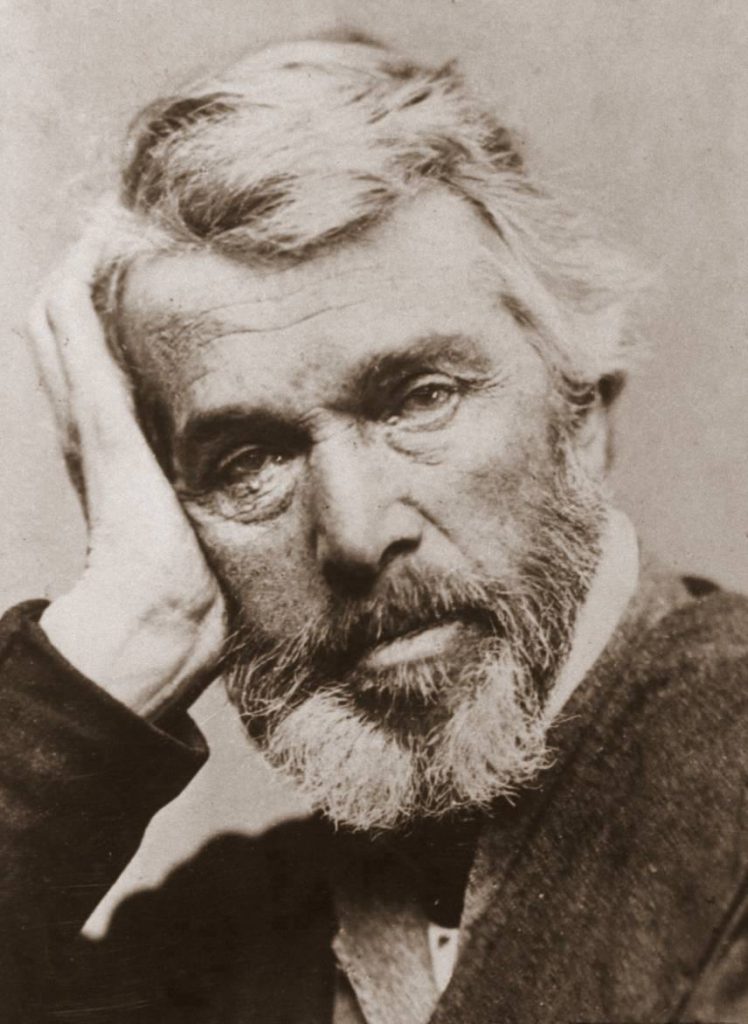Is Taqiyya (Lying for Faith) allowed in Islam?

by Imam Sabahat Karim
Introduction
Taqiyya is an Arabic word which translates into “prudence”, “cautiousness” or “fear”. In religious terms it implies being careful in disclosing your beliefs and tenets in public, when such disclosure could endanger your life.
The word “Taqiyya” is not mentioned in the Holy Qur’an or in any tradition of the Prophet Muhammad(sa). It does not appear anywhere in Islamic Jurisprudence either. From the very outset therefore, the origins of this notion is suspect.
Shi’ism, the second largest group in Islam, introduced the concept of Taqiyya. Shi’i have, for many centuries, been regarded as outcast from the fold of Islam by radical Sunni Muslims, due to their belief that the first three successors of the Holy Prophet(sa), the wives of the Prophet(sa) and most of his companions, were hypocrites (God forbid). For this belief, they have been, at times, subjected to mistreatment and persecution. In order to avoid contention and conflict, “Taqiyya” was practised by Shi’ites, wishing to hide their faith rather than profess it openly, for fear of opposition and confrontation with Sunni Muslims.
Where Taqiyya Comes From
The Claimed Origins
To understand the concept of Taqiyya, it is important to know the story of Ammar ibn Yasir(ra), one of the devoted companions of the Holy Prophet Muhammad(sa). Ammar’s(ra) family (parents and siblings) embraced Islam from its inception. They were former slaves of Abu Jahal, a notorious adversary of Islam.
History bear witness that Makkah, was the land of torture of Muslims for thirteen years. The most vulnerable among Muslims were the first victims of torment. The family of Ammar(ra) was not immuned. Abu Jahl would inflict every physical abuse on this family. Infact Ammar’s parents Yasir(ra) and Samayyah(ra) were the first martyrs of Islam, departing this world under severe torture (Mirza Bashir Ahmad(ra); Seal of the Prophets Volume 1 p. 197).
Ammar(ra) too was subjected to immense physical torture. Once, under such immense torture, not knowing what he was saying, he maligned the Prophet of Islam and praised the pagan gods, so that this tormentors would leave him alone. Seized by remorse for his action, he presented himself tearfully before the Prophet of Islam, who asked him what the condition of his heart was in Islam. Ammar(ra) proclaimed that his heart was at peace in Islam. The Prophet(sa) then reminded him of God’s forgiveness and told him not to worry. It was then that God revealed the following verse, from which proponents of Taqiyya claim authority:
Whoso disbelieves in Allah after he has believed – save him who is forced to make a declaration of disbelief while his heart finds peace in faith – but such as open their breasts to disbelief, on them is Allah’s wrath; and for them is decreed a severe punishment. (Quran 16:107)
Many Shi’ites claim this verse not only permits, but rather legitimises Taqiyya when under threat. They believe that this verse legitimises not disclosing one’s beliefs in public out of fear of persecution, and even hiding or actively lying about one’s beliefs, for fear of persecution.
Are they right?
The Real Origins of Taqiyya
There is a significant difference between what happened to Ammar(ra) and the practice of Taqiyya. Ammar(ra) did not hide his faith, and nor did his parents. It was precisely because they refused to hide their faith that they were persecuted in the first place.
The Quranic verse cited above does not give permission to lie about one’s faith and certainly does not give permission to hide one’s faith out of fear. All it states is that he who recants his faith under coercion and duress, may be forgiven by God. That is not the same as saying that those who hide their faith or lie about their faith will not be under the wrath of God. It should be noted that the verse of the Quran is not a commandment, but is in fact only a provision of forgiveness. It is not a command to recant one’s faith under duress. So if the Quranic verse doesn’t give license to Taqiyya as it is commonly understood, where did this perverse interpretation come from?
Shi’ites promote Taqiyya in order to defend their stance on their core difference from Sunni Muslims, namely that Imam Ali(ra) and his family pledged allegiance at the hand of the first three Khulafa, while secretly believing that he, not they, should have been the rightful Caliph. Shi’ites believe that Caliphate should have been established within the family of the Holy Prophet(sa) as a form of inherited successorship. To explain why (according to them) Imam Ali(ra) took this hypocritical stance, they invoke the practice of Taqiyya. They argue that he pledged allegiance to them out of fear of them, and out of a feeling of compulsion, hiding his true views.
The fact is nothing can be furthest from the truth. Imam Ali(ra) and his innocent family are pure from this blemish of hypocrisy and Taqiyya, and we know that by reflecting on the events of his life.

Firstly, Imam Ali(ra) was known as a fierce and fearless fighter who never hid his view, but always spoke the truth boldly.
Secondly, we know that Shi’ites also hold his son, Imam Hussain(ra), in great esteem. Indeed, they revere him immensely, as do all Muslims, principally for his extraordinary stance in refusing to pledge allegiance to Yazid, preferring instead to fight to the death. He watched seventy members of his family massacred by an army numbering thousands, before he himself was cruelly martyred, all because he refused to pledge allegiance to one whom he considered false.
We must therefore ask our Shi’ite brothers to reflect and answer the following conundrum they face: is practising Taqiyya good or bad? If it is an evil practice, then why did Imam Ali(ra) practise Taqiyya, according to them? If it is good then why did Imam Hussain(ra) not practise Taqiyya against Yazid?
Further, who is the greater Imam between Ali(ra) and Hussein(ra) according to Shi’ites? Shi’ites will say Imam Ali(ra) is the greater Imam. He did Taqiyya three times according to the Shi’ites with three (God-forbid) false and fraudulent Khalifas, yet Imam Hussein(ra) refused to follow the practice of his father, and the greater Imam, by even doing Taqiyya once, of the pretender Yazid! What a contradiction!
The reality is that the doctrine of Taqiyya was invented after the events of early Islam, as a way to provide theological support for political differences.
The Real Origins of Taqiyya
The reality is that the doctrine of Taqiyya was invented after the events of early Islam, as a way to provide theological support for political differences. Shi’ite Muslims, out of political division and hatred for others, labelled almost all early Muslims as hypocrites, except the members of the Holy Prophet’s(sa) family. They did this to provide theological justification for political disagreements with their own contemporaries. The problem was that they needed to explain why Imam Ali(ra) pledged allegiance to the very individuals they regarded, out of political hatred for their own contemporaries, as frauds. Taqiyya was the result.
Thus, Taqiyya is the heart and soul of the Shi’ites beliefs; without Taqiyya the whole edifice of Shi’ism collapses and merges into mainstream Sunni Islam. Hence, it is a doctrine fanatically guarded and defended with tooth and nail, regardless of the multiple logical inconsistencies it creates.
The Importance of Truth
The Quran on Truth
Taking this commandment to its extreme, by claiming it is a commandment to hide one’s faith, is incorrect and a violation of the repeated injunctions in the Quran to speak the truth clearly, without fear:
O ye who believe! be strict in observing justice, and be witnesses for Allah, even though it be against yourselves or against parents and kindred. Whether he be rich or poor, Allah is more regardful of them both than you are. Therefore follow not low desires so that you may be able to act equitably. And if you conceal the truth or evade it, then remember that Allah is well aware of what you do.
(Quran 4:136)
Shun all words of untruth
(Quran 22:31)
Surely, Allah guides not him who is an ungrateful liar
(Quran 39:4)
(Quran 25:73)
And those who bear not false witness, and when they pass by anything vain, they pass on with dignity;
Do not conceal true testimony; and he who conceals it, his heart is certainly sinful.
(Quran 2:284)
(Quran 6:153)
…And when you speak, observe justice, even if the concerned person be a relative, and fulfil the covenant of Allah…
Let not hostility towards people prevent you from giving true testimony.
(Quran 5:9)
One can see from the above how clearly divorced the concept of Taqiyya is from the teachings of Islam. Indeed, “The Truth” is listed as one of the names of God in the Quran. This, along with the small selection of Quranic verses listed above, emphasising the importance of speaking the truth, should be enough to demonstrate how clearly the Quran is against the common concept of Taqiyya.
The Prophet Muhammad(sa) himself also emphasised the importance of speaking the truth, to such an extent that he laid it as the foundation of every other virtue.
Muhammad(sa): “Truth Guides to Virtue”
The Prophet Muhammad’s(sa) life constitutes a litany of examples of telling the truth, despite the greatest risk of doing so, to life and limb. When his uncle, Abu Talib, approached him on behalf of the pagan Meccan leaders, and asked him to cease in his denunciation of the Meccan idols. What did the Holy Prophet(sa) reply? He stated:
This is not abusive language, rather it is the truth asserted upon its correct place, and it is for this purpose that I have been commissioned, that I may show them their evils and invite them towards the right path. If I must die in this cause, I delightedly accept my fate. My life is devoted in this cause, and I shall not abstain from the expression of the truth by fear of death. O Uncle! If you are worried on account of your weakness and distress, then by all means relinquish your protection of me. I shall never refrain from the conveyance of divine injunctions. By God! If these people put the sun on my one hand and the moon upon the other, even then I shall not refrain from the fulfillment of my responsibility. I shall continue my work until God completes it or I die in this endeavour.”
Mirza Bashir Ahmad(ra); Life and Character of the Seal of the Prophets, Volume 1, p. 192
What part of the above statement contains even a hint of Taqiyya? His clear declaration of his willingness to die for his faith, constitutes a forceful rebuttal of any notion that Taqiyya is permitted in Islam.
In addition to the Holy Prophet’s own example, we have his words too, as an evidence against Taqiyya having any legitimate place in Islam:
Hazrat Ibn-e-Masud(ra) has related that the Holy Prophet(sa) said, ‘Truth guides to virtue, and virtue guides to Paradise. A person keeps telling the truth till in the sight of Allah he is named truthful. Lying leads to vice, and vice leads to the Fire; and a person keeps lying till in the sight of Allah he is named a liar.’
Sahih al-Bukhari 6094 / Book 78, Hadith 121
Hazrat Abdullah Bin ‘Amr Bin al-As(ra) relates that the Holy Prophet(sa) said: ‘Whoever has the following four characteristics is a real hypocrite, and whoever has one of these characteristic has an element of hypocrisy until he leaves that habit: When he speaks, he tells a lie; when he makes a contract, he breaks it; when he makes a promise, he breaks it and when he argues, he starts using foul language.
Sahih al-Bukhari 34 / Book 2, Hadith 27
The Promised Messiah(as) Against Taqiyya
The Imam of this age, the Imam Mahdi and Promised Messiah(as), Hazrat Mirza Ghulam Ahmad, has also spoken clearly against falsehood in all its forms. On the concept of telling the truth even at risk to one’s own person, property or honour, he writes:

If a person tells the truth only when he stands to lose nothing, but tells a lie when his honour, property or life are threatened, how can he be considered better than children or the insane? Do minors and the insane not speak this kind of truth? There is hardly anyone in the world who would tell a lie without any motive. Therefore, the truth that is forsaken when faced with possible loss can never form part of true morals. The real occasion of telling the truth is when one apprehends loss of life or property or honour.”
Mirza Ghulam Ahmad(as), The Philosophy of the Teachings of Islam p. 74
Addressing the topic of Taqiyya, the Promised Messiah(as) stated:
I observe that some people join [the community] who are weak in faith and when they are threatened and intimidated by people in the slightest of manner, they write to me that we have practiced Taqiyya. Tell me, did Prophets, may peace be upon them, practice Taqiyya in such a manner? Never! They are courageous and are least worried about tribulations and suffering. They are unable to hide what they bring, even if they do not enjoy the support of a single person. They do not love the world. God alone is their beloved. They prefer being executed in this cause not once, but a thousand times. You may understand from this that if they do not find pleasure and enjoy a true relationship with Allah the Exalted, why does this group [of Prophets] endure such tribulations? Read the life of the Holy Prophet(sa)! To what extent did the disbelievers inflict harm on him? A plot was made to execute him. He went to Ta’if and returned drenched in blood. At last, he had to leave Mecca. However, he did not conceal what he carried in his heart and the purpose for which he was appointed, even for a moment.
Malfoozat, Vol: 8 / P: 60-61
Summary
Falsehood has no place in Islam. Believers are admonished to uphold the truth even against close relatives or themselves. Those who do conceal and lie are considered weak in faith. Therefore true piety and righteousness, in essance, comes with truthfulness.
Once a sinner came to the Holy Prophet Muhammad(sa), broken and remorseful. He confessed and pleaded for guidance so he could overcome his sinful habits such as, stealing, drinking, gambling, fornication, deceiving with lies etc. The one and only piece of advice the Prophet(sa) gave him was to stop telling lies. Astonished at the reply, he asked again, but again, “just stop lying”, the Prophet repeated. This one, seemingly easy habit of speaking the truth over all other vices, changed his life. Later, he recounted how, whenever he intended to commit a sin, he would think of the consequences, and particularly think of the question of what he would say if caught and held accountable. Being unable to lie would mean condemning himself by his own tongue, if challenged on his crime. Out of fear of such a situation arising, he managed to give up all his past vices (Tafsir-al-Kabir by Fakhr-ad-Din-ar-Razi Vol:16 – p.227)
As for Ammar(ra), subsequent events of sacrifice proved his loyalty and devotion to Islam. Yasir(ra) and Sammayah(ra), his parents, are timeless role models for all Muslims, who sacrificed their lives for what was their birthright to defend – freedom of conscience. Therefore the verse, used to back up the notion of Taqiyya, in actuality provides direction for those who are forcefully compelled and are coerced into blasphemy, that they should not despair, that God shall have mercy on them despite weakness, provided they repent.

Finally I shall quote a historian, a philosopher, a translator, an Orientalist, a man of many talents, Thomas Carlyle (4 December 1795 – 5 February 1881). He eloquently magnified the noble character of truthfulness of the founder of Islam, during his remarkable lecture on May 8, 1840; “The Hero as Prophet, Mahomet: Islam”. He wrote:
“…Our current hypothesis about Mahomet, that he was a scheming impostor, a Falsehood incarnate, that his religion is a mere mass of quackery and fatuity, begins really to be now untenable to any one. The lies, which well-meaning zeal has heaped round this man, are disgraceful to ourselves only… The word this man spoke has been the life-guidance now of a hundred and eighty millions of men these twelve hundred years. These hundred and eighty millions were made by God as well as we. A greater number of God’s creatures believe in Mahomet’s word at this hour, than in any other word whatever. Are we to suppose that it was a miserable piece of spiritual legerdemain, this which so many created of the Almighty have lived by and died by? I, for my part, cannot form any such supposition. I will believe most things sooner than that. One would be entirely at a loss what to think of this world at all, if quackery so grew and were sanctioned here…A false man found a religion? Why, a false man cannot build a brick house! If he do not know and follow truly the properties of mortar, burnt clay and what else be works in, it is no house that he makes, but a rubbish-heap. It will not stand for twelve centuries, to lodge a hundred and eighty millions; it will fall straightway.”
Carlyle. T; Heroes and Hero Worship
Further Reading:
More articles
Contact
National Outreach Department:181 London Rd, Morden SM4 5PT, U.K.
Email: [email protected]Phone: 0208 6877804
@ 2025 Ahmadiyya Muslim Community, All Rights Reserved.